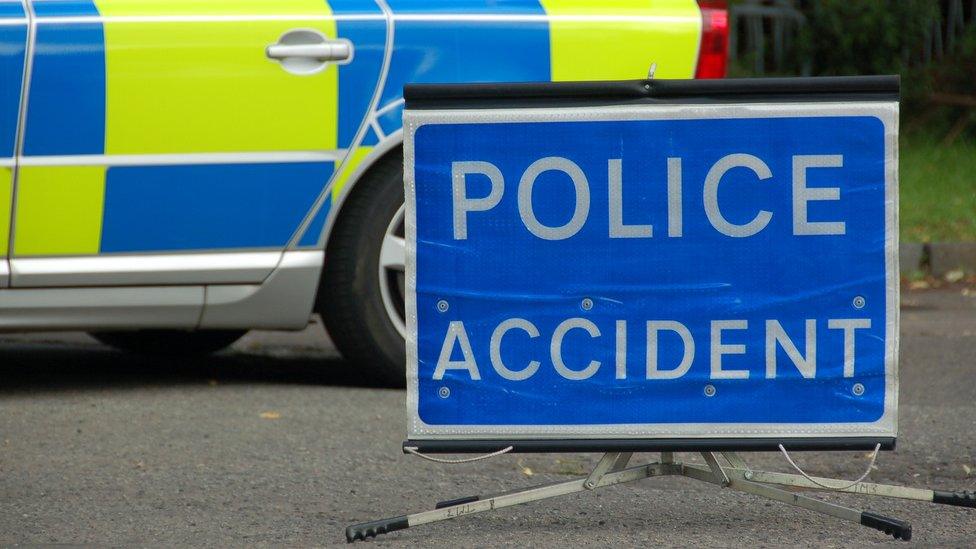Hit and run accidents: Report finds numbers on the rise
- Published

Many defendants in road accident cases did not know they were legally required to stop, university researchers say.
Leicester University's Criminology Department found more than 17,000 cases in 2015 involved a hit and run driver.
This was 12% of all road accidents in Great Britain involving injury, and the second annual increase in a row.
Safety charity Brake said there was an incentive for drivers to flee after killing under the influence of drink or drugs - and face lesser charges.
"If you hit and kill someone when behind the wheel and you're found to be under the influence of alcohol or drugs, you could face up to 14 years in jail.," said Brake spokeswoman Lucy Amos.
"However, if you flee the scene and wait to sober up, you'll most likely be charged with 'hit and run' and face a maximum sentence of six months.
"There must be an assumption that if they fled the scene, they caused the crash through dangerous driving.
Section 170 of the Road Traffic Act 1988, external requires that drivers involved in an accident must stop where
personal injury is caused to somebody other than the driver of the vehicle or
damage is caused to another vehicle, road furniture or certain animals (horse, cattle, donkey, mule, sheep, pig, goat or dog).
They must also exchange details as appropriate, or report the accident within 24 hours.
The research was commissioned by the Motor Insurers' Bureau, which compensates the innocent victims of accidents involving uninsured drivers and those who did not stop.
'Self-preservation'
It included data on 695 people convicted of committing a hit and run offence who responded to a postal survey (out of 19,071 surveys which were sent out) including 52 in-depth interviews. The researchers say they identified a number of common reasons why people leave the scene of an accident:
'Self-preservation mode' (identified in 21 of the in-depth interviews): Drivers wished to hide they fact they had committed a crime (including driving without insurance); were afraid for their own safety or feared they were being "set up" by a scam;
Cases where the driver claims the incident is not serious and uses this as justification for not reporting (16 interviews);
The driver claimed to have no knowledge of being in an accident (eight interviews);
Drivers' judgement was impaired by drink or drugs (seven interviews).
Of the 52 interviewees 41 were male and 10 under the age of 34.
Many drivers "really weren't aware of what to do after they'd had an accident," the university's Dr Matt Hopkins said.
"Interestingly, there seems to be a public perception that motoring offences are not 'real crimes' and therefore there is a tendency for drivers to justify their behaviour," said Dr Hopkins.
But RAC Foundation director Steve Gooding warned: "Motorists might think they are avoiding trouble by leaving the scene but by doing so they could actually be creating many more difficulties for themselves."